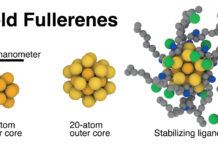
Milk-based edible food packaging and ready-meal trays made from wood could help reduce the pervasiveness of single-use plastic, a major cause of environmental pollution adversely affecting wildlife, habitats and human health.
It may come as a shock to some, but around half of all the plastic products in the world are used only once. After they enter the waste stream, these practically indestructible synthetic materials end up in landfill or oceans, persisting in the environment for hundreds of years.
Consumer awareness is growing, and improved recycling methods help to alleviate the problem. But while plastic packaging accounts for almost two-thirds of all plastics used in the EU, less than half of it is ever recycled.
Reducing the volumes of plastic entering the waste stream at source would be one very effective way to prevent pollution. To do this means developing alternative packaging made from biodegradable materials derived from organic sources such as wood pulp and waste milk.
These could be as versatile as synthetic plastics while being much more environmentally friendly, and be used for products ranging from dishwasher detergents and swimming pool chemicals to ready-made meals and even foodstuffs like cheese.
Read more: Single-use plastic to get an eco-friendly makeover
Image courtesy of: Lactips














